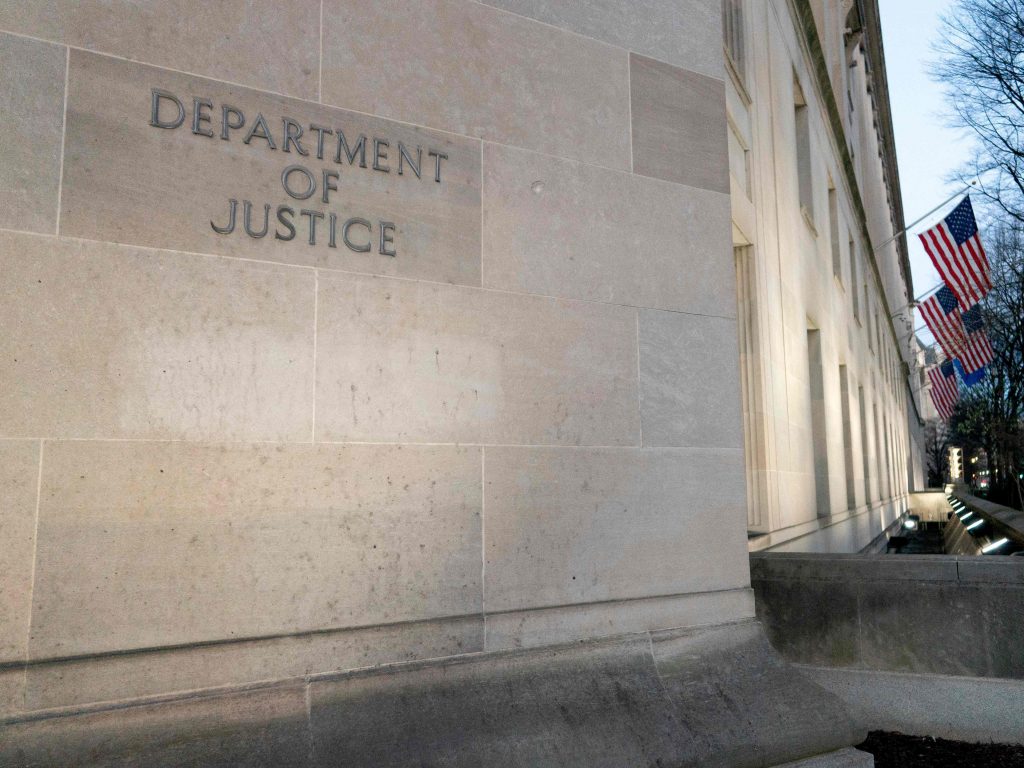- A corruption prosecutor is helping with "investigatory efforts" in the sprawling January 6 inquiry.
- JP Cooney previously oversaw the prosecutions of Trump allies Steve Bannon and Roger Stone.
- The staff move offers one more sign that the Justice Department is ramping up its inquiry into Trump.
The Justice Department has staffed up its team investigating the January 6, 2021, attack on the Capitol and efforts to overturn then-President Donald Trump's loss in the 2020 election, adding a federal prosecutor with experience handling high-profile cases.
In an office-wide email Thursday, US attorney Matt Graves said he had asked a top public corruption prosecutor, JP Cooney, to help with "some of the investigatory efforts" in the January 6 investigation, people familiar with the move told Insider.
The email did not elaborate on those investigative steps. But in a hastily-called meeting earlier Thursday, Cooney told colleagues that he would be working with the team that includes Thomas Windom, who has emerged as a key prosecutor as the Justice Department has increasingly scrutinized the role Trump allies played in the effort to reverse the former president's electoral defeat, according to a person familiar with the internal discussions.
Graves, who was confirmed last year as thetop federal prosecutor in Washington, DC, announced the move as part of a broader reorganization within the largest US attorney's office in the country as it spearheads the hundreds of cases stemming from the Capitol siege.
The reshuffling will reshape the role of another top prosecutor overseeing the deluge of more than 800 cases linked to the January 6 insurrection.
John Crabb, who has doubled this year as chief of the criminal division and a recently created section devoted to Capitol riot cases, is leaving the former role to focus more fully on the January 6 investigation, according to people familiar with the staff moves. In his email to staff Thursday, Graves said prosecutor Denise Cheung would step in for Crabb as acting chief of the office's criminal division.
A spokesperson for the US attorney's office, William Miller, declined to comment.
The recent reorganization of the US attorney's office in Washington represents the latest indication of how the Justice Department is accelerating its investigation into efforts to overturn the 2020 election — and closing in on Trump.
In recent months, the Justice Department has issued subpoenas as part of an inquiry into the so-called "fake electors" scheme, in which Trump supporters assembled slates of purported electors pledged to Trump in crucial battleground states where Joe Biden prevailed in 2020.
More recently, prosecutors have directly asked witnesses about Trump's involvement in efforts to overturn his election loss, an indication that the inquiry is entering a more aggressive and sensitive phase. The questioning has come on the heels of a string of public hearings where the House committee investigating the January 6 attack has aired damning evidence linking Trump directly to the efforts to prevent the peaceful handoff of power.
In recent years, Crabb and Cooney have supervised several politically sensitive prosecutions, including the Justice Department's recent case against the longtime Trump ally Steve Bannon. On Friday, Cooney was at the federal courthouse in Washington, DC, when a jury convicted Bannon on two charges of contempt of Congress stemming from his defiance of the House committee investigating the January 6, 2021, attack on the Capitol.
Cooney was also involved in the 2019 prosecution of Roger Stone on charges he obstructed a congressional investigation into Russia's interference in the 2016 election and tampered with a witness.
Following that conviction, two prosecutors withdrew from the case and a third resigned from the Justice Department entirely after Attorney General William Barr intervened to overrule their suggested prison term and suggest a lighter sentence for the longtime Trump advisor. When a federal judge summoned prosecutors to explain the unusual shift in Stone's case, Crabb appeared in court and defended the original sentencing recommendation.
Stone was later sentenced to more than three years in prison. But Trump commuted the sentence days before Stone was set to report to prison.
Cooney was also among the prosecutors who weighed charging former FBI leader Andrew McCabe with lying to internal investigators about a media leak. Prosecutors ultimately declined to charge McCabe, a frequent target of Trump's scorn who was fired in 2018 after the Justice Department's inspector general found that displayed a "lack of candor" in his dealings with the internal watchdog office.
The investigation into the attack on the Capitol and efforts to overturn the 2020 election have brought renewed scrutiny onto Trump allies and former aides.
Last week, two top aides to former Vice President Mike Pence testified before a grand jury in Washington, DC, and the Justice Department has issued search warrants and subpoenas to a growing number of figures tied to Trump and his efforts to hold onto power.
In June, federal investigators searched the home of Jeffrey Clark, a former Justice Department official who advanced Trump's baseless claims of election fraud. Clark has since been charged with ethics violations by the top licensing organization for lawyers practicing in Washington, DC.
On the same days as the search of Clark's home in Virginia, federal agents in New Mexico seized the phone of John Eastman, a conservative lawyer who helped advise Trump on how to overturn his election loss.
On Wednesday, Windom revealed in a court filing that the Justice Department has since obtained a second search warrant allowing investigators to review the contents of Eastman's phone.

